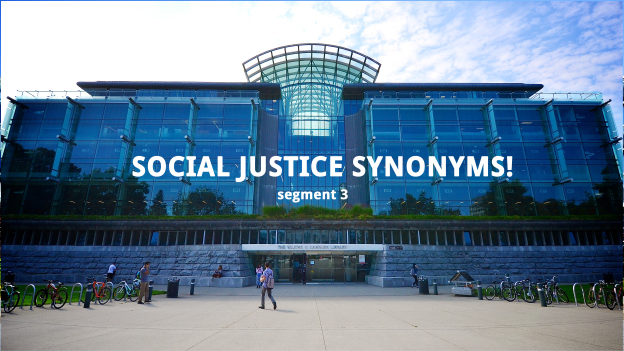Welcome to the third segment of Social Justice Synonyms, a column at The Talon that encourages inclusive, peaceful dialogue, and discourages oppressive and discriminatory language.
Today’s words are classy and poor.
Classy may seem innocuous at first. We compliment our friends for looking classy when they are dressed up. We attach the word “classy” to certain interior designs of coffee shops, restaurants, bars. What we deem as “classy” is often based on the aesthetics of high income. So when you call your friend “classy,” you are saying, “You look like a rich person. Being a poor person is undesirable.”
This denigrates low-income and working class people. “Classy” attire distinguishes the wearer from someone who cannot afford to own it. It’s a zero-sum game. This is not a controversial interpretation, but its implications often slip under the radar. Both in its modern usage and its etymological roots, the word “classy” celebrates a display of class status and high income.
We also frequently commend someone on their “classiness” for being polite, observing social customs, or being punctual. Historically, etiquette has been used to draw class divisions between different racial groups, cultures, genders, sexualities, and socioeconomic groups.
We cannot extract discussions of “classiness” from discussions of economic class. The two are intricately linked.
This is the same for the word poor, which conflates performing inadequately with being from a lower income bracket. The implications of mixing these two definitions is striking. Do we really want to imply that not having money is an indication that someone is of inferior quality? Under the current capitalist paradigm, the idea that all accomplishments are ‘merit-based’ (“meritocracy”), hides structural oppressions and marginalizes minority groups. The reality is that monetary success is more frequently associated with favoritism to family and friends (nepotism, cronyism) and positionality. If hard work was truly rewarded by capitalism, single mothers would be rich. When we use the word “poor” to mean “bad”, we’re enforcing that oppressive ideology.
| Use/context | Alternatives |
| “You’re a class act.” | “You’re really on the ball tonight.” “You are charming.” “You’re nice.” |
| “I went to a classy bar last night” | “I went to a bourgeois bar last night.” “I went to an upper middle class bar last night” “I went to an expensive bar last night” |
| “You look classy tonight.” | “You’re looking fashionable tonight.” “You look like an elegant swan.” “That’s a tasteful outfit. Good job.” “It looks like you put a lot of effort in.” “You look nice.” |
| “They did poorly.” | “They didn’t do well.” “They failed to meet expectations.” “They performed inadequately.” |
It’s also considered impolite, or not “classy”, to talk about money and wages. It is clear who benefits from this. The upper class would rather not talk about income disparity because they benefit from the invisibility of unequal wages. So, in addition to staying mindful about your language, talk about class. Talk about wages. Talk about money. If we are to subvert the classism inherent in our language, we’re going to have to start those conversations.
Note: A previous version of this article contained the word “capable”. We have taken this out because of its ableist connotations and we apologize for this oversight.
If you have any word suggestions for future weeks, feel free to contact us at talonubc@gmail.com with the headline: Suggestion for Social Justice Synonyms. Looking forward to hearing from you!




